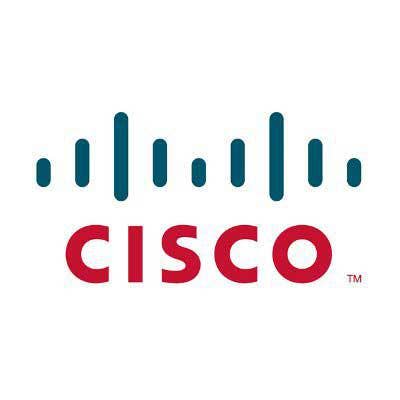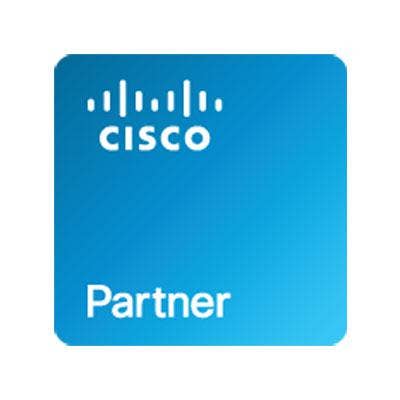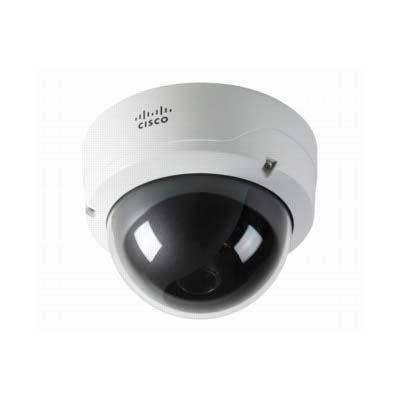10 Sticky Questions For 'The Next Cisco'

Cisco's Question Marks
On Cisco's fourth quarter earnings call earlier this month, Chairman and CEO John Chambers said Cisco was charting a course toward "the next Cisco" -- a leaner company, simpler to do business with and more focused on key technology priorities instead of 30 or more distracting "adjacencies."
Based on all that's happened to Cisco in the past eight months and CRN's ongoing interviews with Cisco observers, here's a look at 10 big questions for the networking titan as its employees, channel partners and customers charge into Cisco's fiscal 2012.

Has Cisco Turned The Corner?
The first question, and the most obvious, concerns Cisco's growth, especially as it lays off 6,500 employees as part of a workforce reduction that'll leave Cisco well north of 12,000 jobs lighter.
Cisco took an expected profit loss during its fourth quarter of 2011, but there were a number of signs that Cisco is beginning to stabilize as it continues a broad corporate restructuring expected to remove $1 billion in expenses during its fiscal year. Specifically, said Chambers, Cisco will be a "very focused, agile, lean and aggressive company," and expects to grow revenue between 1 percent and 4 percent in the first quarter.
Cisco COO Gary Moore offered another stat that bears watching for partners. Moore said that thanks to Cisco's restructuring, deal approval time has been reduced by more than 65 percent, which was also translating to higher conversion rates and higher win rates for Cisco. It'll take a few quarters to determine whether all of Cisco's cuts mean a simpler, smoother Cisco.

How Will Cisco Defend The Crown?
Cisco may be starting to stabilize, but don't bet that any of its major competitors have lost their taste for Cisco blood, especially after Cisco spent so much of calendar 2011 playing defense. HP isn't the only company touting market share gains against Cisco, and smaller players, like Juniper and Brocade, continue to attack Cisco's bases with relish.
The other new factor? Thousands of Cisco employees -- no small number of them VP-level veterans -- have left the company following Cisco's restructuring. CRN interviews with sources inside Juniper, Huawei Symantec, HP, ShoreTel, Arista Networks and many others -- not to mention several VARs -- have all confirmed the same thing: hiring managers' desks are piled high with Cisco-dappled resumes. Will all that veteran, departed Cisco talent come back to haunt the networking king?

What's The Meat Behind 'Partner-Led'?
Cisco's corporate restructuring has meant a number of changes specific to its Worldwide Partner Organization (WWPO), including the appointments of new channel-facing executives, and departures of others.
It also meant the move to a new strategy called "partner-led," which will theoretically mean a greater emphasis on sales of Cisco products and services through channel partners in all but Cisco's most strategic accounts. Cisco partners, by and large, like the sound of partner-led but most have told CRN the strategy needs clarity: less concept, they say, more brass tacks, cleanly described sales engagement terms.

How Will Cisco's Channel Incentive Programs Evolve?
Cisco in mid-August confirmed changes to its major channel incentive programs, notably the Value Incentive Program (VIP), which in its 18th installment will see some fatter rewards for particular Cisco VARs, and the Teaming Incentive Program (SIP), which finally rolled out in the U.S. more than a year after its debut. The changes mean that one of partners' biggest fears heading into Cisco's fiscal 2012 -- that Cisco would make big cuts to the budget it allocates to the incentive programs -- appears to have been laid to rest.
But look closer, and there are more curious questions. Ricardo Moreno, Cisco's senior director, Strategy, Planning & Programs, Worldwide Channels, told CRN that new incentive programs related to Cisco's cloud programs and partner-led initiative are coming. Will those be sweet rewards for partners or end up creating headaches with too many incentive possibilities and too much complexity?

Is Cisco's Video Strategy Settled?
On one hand, video has never been a more pronounced piece of the Cisco portfolio. Cisco has named video as one of its five major focus areas for "the new Cisco," revenue on its collaboration unit grew 11 percent year-over-year in Q4, and Tandberg is now fully integrated into Cisco, more than a year after Cisco closed its $3.3 billion acquisition. The ordering problems that hampered the Tandberg integration earlier this year seem to have ebbed, according to VARs.
On the other hand, Cisco has cut a number of collaboration and video executives and seen several more walk out the door, and consolidated its service provider, enterprise and consumer video efforts under one executive, Marthin De Beer. There's also the small matters of two of its major consumer-facing video plays, the now-shuttered Flip and the marginalized Umi home telepresence. Video seems one area where Cisco partners seemingly don't need to worry, but it's also difficult to see things as "settled."

Will Cisco Refocus On Security?
Here's a stat that perhaps hasn't gotten much attention from Cisco observers as others have: Cisco's security product sales declined 8.4 percent from its fiscal 2010 to its fiscal 2011, and declined 21 percent (about $415 million this year versus $526 million last year) in its fiscal fourth quarter on a year-over-year basis.
In an interview with CRN earlier this year, Cisco Chairman and CEO John Chambers said that "security is our number one emphasis across the whole company, mainly because it's our customers' No. 1 issue" and discussed how many security challenges will be solved "in the network." After a year of security declines for Cisco -- and the fact that its ASA appliances were its hardest-hit products during Cisco's 2010 supply chain crisis -- many security-facing solution providers are wondering about Cisco's next move here.

Has Cisco's Acquisition Strategy Changed?
Up through the present, Cisco has been on an acquisitions streak that's gone largely unabated since 1993 -- indeed, it's one of the industry's most voracious acquirers.
What'll be interesting is whether this year's emphasis on Cisco's restructuring means any slowdown in acquisitions overall. Cisco bought three companies already this year, including cloud provisioning specialist NewScale, but it's vowed to become a simpler company, and less distracted by new "adjacencies" to which some acquisitions can provide it access.

Is Cisco Cius A Tablet Contender?
Cisco is looking to position Cius, its Android-based tablet, as the ultimate in business-centric endpoints for full-fledged enterprise unified communications systems.
Cisco finally launched the Cius globally at the end of July, and with volume discount programs, the Cius' price should be about $650, not including the additional price of its docking station. Is the market ready to embrace Cius, however, when so much of Cius' charm depends on its use with Cisco's own equipment and services, and there's so much competition in the tablet market in general? Cisco has been steadfast in positioning Cius as having business-centric features, such as on-board security, that separate it from Apple's iPad, but with iPad itself penetrating the enterprise and so much eardrum-shattering hype around tablets, Cisco may have a harder time directing the conversation than it first thought.

Is VCE Solid?
More than a few VARs have reported myriad problems and logistical headaches with VCE, the company that was established as a joint venture of Cisco and EMC with buy-in from VMware and Intel and designed to push the converged data center technologies and private cloud ambitions of all of those vendors.
Rob Lloyd, Cisco's executive vice president, worldwide operations, told CRN in July he is "personally involved" in making VCE simpler and easier for partners to work with, but many questions remain about the venture, which recently opened up to two-tier distribution with Ingram Micro, Arrow and Avnet. EMC recently spoke of "momentum" with VCE in EMC's most recent 10-Q filing, but VCE has also lost millions amid ongoing whispers of internal restructuring.
With all the see-saw chatter, it's tough to get a read on how healthy the VCE venture really is.

Is Cisco Still Focused On Energy?
Because of all the cheerleading Cisco has done for the smart grid and energy management opportunities in recent years, its recent decision to abandon its Network Building Mediator product has gotten more attention than Cisco probably hoped. Gary Moore, Cisco's executive vice president and COO, said on Cisco's Q4 earnings call that Cisco "will no longer be investing in premise energy management devices," a statement that lead to a round of speculation about Cisco's energy market ambitions.
Laura Ipsen, senior vice president and general manager, Cisco Connected Energy Group, said in a corporate blog post that Cisco's "commitment to the industry remains strong and our vision for energy management and Smart Grid has not changed." But for VARs and energy market specialists looking to Cisco as a potential thought leader for next-gen energy management technologies, the move leaves a sour aftertaste.